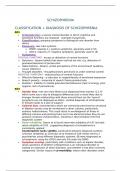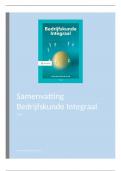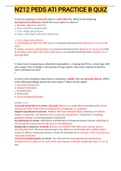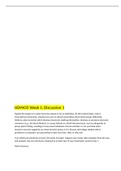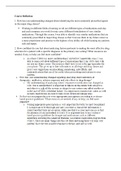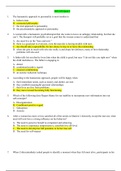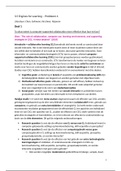Summary
Summary psychology AQA schizophrenia notes
- Module
- Schizophrenia
- Institution
- AQA
This document contains notes for psychology AQA schizophrenia. It includes clear AO1 points as well as a range of AO3 (evaluation) points including studies.
[Show more]
